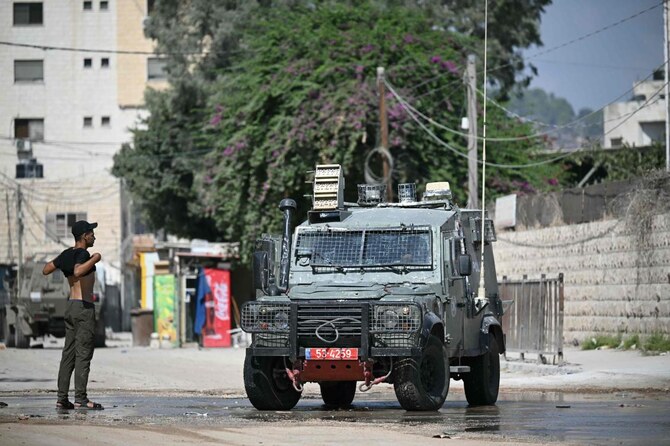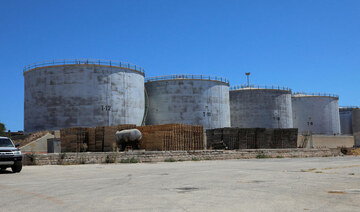DUBAI: Israel’s first attack on Yemen’s Houthis, who have defied months of strikes by the United States and Britain, will likely only embolden the militant group, analysts say.
Saturday’s strike on the port city of Hodeida, which themilitant group say killed six people and triggered a massive fire, will provide the Houthis with “political capital,” said Maged Al-MadHajji, co-founder of the Sanaa Center for Strategic Studies think tank.
“They legitimize Houthi claims that they are waging a war with Israel,” which could widen the militant group's appeal amid growing anger in Yemen over the Gaza war, he told AFP.
Since the start of the Israel-Hamas war in October, the Houthis have positioned themselves as a key member of Tehran’s regional network of allies, which includes armed groups in Lebanon, Syria and Iraq.
They have launched nearly 90 attacks on commercial vessels in the Red Sea and the Gulf of Aden since November and on Friday, a Houthi drone attack breached Israel’s intricate air defenses, killing one person in Tel Aviv, triggering Israel’s strike on Hodeida.
Hours after the Hodeida attack, hundreds of Yemenis took to the streets of the Houthi-controlled capital Sanaa, chanting — “death to America, death to Israel” — as they waved Palestinian flags.
“For the rebels, these attacks serve as a powerful propaganda tool. They can rally their supporters by framing themselves as defenders against a new external aggressor,” said Afrah Nasser, non-resident fellow at the Arab Center Washington DC think tank.
“This can attract new recruits and solidify their base.”
Themilitant group have already withstood repeated US and British strikes, aimed at deterring Houthi attacks on shipping, since January.
Gregory Johnsen, associate director of the Institute for Future Conflict at the US Air Force Academy, said that the Houthis “want nothing more than to be seen fighting the ‘American-Zionist’ alliance.”
In a social media post, the Yemen expert said “this helps them domestically, by intertwining Houthi goals with the Palestinian cause, which is very popular in Yemen.”
It also “mutes domestic dissent and neutralizes local rivals,” he said.
The Houthis seized the capital Sanaa in 2014, prompting a Saudi-led coalition to intervene the following year to prop up the internationally-recognized government.
Nearly a decade of war has failed to weaken the militant group who control large swathes of the country, including much of its Red Sea coast.
“The past decade of internationalized civil war in Yemen demonstrates that the Houthi leadership is undeterred by military strikes,” said Elisabeth Kendall, a Yemen expert at the University of Cambridge
“The Houthis will be emboldened by their growing notoriety and relish their engineered status as defenders of Palestine,” she told AFP.
Hodeida’s port, a vital entry point for fuel imports and international aid for Houthi-held areas of Yemen, had remained largely untouched through the war.
Andreas Kreig, a military analyst and senior lecturer in security studies at King’s College London, said Israel’s strike “won’t significantly erode the Houthi supply chain” of weapons.
“Component parts for missiles can be delivered along various routes and do not require massive port facilities,” he told AFP, adding that “Iran has highly diversified supply chains and will find different routes” to deliver weapon components that can be assembled domestically.
The Houthis, however, will not emerge unscathed from the Israeli attack, which could hamper future fuel imports and has already sparked fears of shortages amid a severe financial crunch.
The strike, which destroyed storage tanks, “will result in severe fuel shortages across northern Yemen, affecting critical services like diesel generators for hospitals,” said Mohammed Albasha, senior Middle East analyst for the US-based Navanti Group.
“Additionally, the damage to the power station in Hodeida, coupled with the blistering summer heat, will significantly worsen the suffering of the local population,” he told AFP, adding that reconstruction would “be both costly and challenging.”
Nicholas Brumfield, a Yemen expert, said the attack is “going to have dire humanitarian effects on the millions of ordinary Yemenis living in Houthi-held Yemen.”
It will drive up “prices for not just fuel but anything carried by truck,” he said on social media.

























